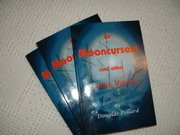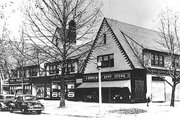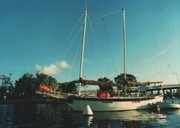This is the story of one family that came to Dundalk in 1932 To me it seems inconceivable that they would undertake building a home with Mr. Pollard only having two days a week of work at his regular job. He was able to pay the rent for the house they lived in by doing carpentry work on the houses in the group of houses where they lived on Parnell ave.. They were not the only ones that built homes around Dundalk under these circumstances. There are many families that could tell the same story. I guess if you have five days a week off from work you might as well build a house especially if you can find free materials and your willing to learn how.
Fred took his family to Baltimore from Waycross Ga. where he went to work for Bethlehem Steel Co. at Sparrows Point. He was a machinist and he worked at maintaining rail cars and steam locomotives for the steel co. They lived in a company house close to blast furnaces and railroad tracks running in every direction. Soot settled onto and into every thing they owned cloths soon took on a rusty look. There was constant noise day and night.
The company paid off in chits that had to be spent in the company store or cashed in at the company bank for less than face value. The rent was deducted from his pay. They could hardly wait to get away from there and in less than a year he landed a very good job with Western Electric in Baltimore.
They rented a house in a little Italian immigrant neighbor hood on the edge of Baltimore named St. Helena. The rent was cheap and they were able to save a little money. The depression struck and Fred lived in fear of loosing his job. With a little savings and by cashing in an insurance policy, they bought an acre of land near the little town of Dudalk across the streetcar tracks on Robinwood Rd. Dad was one of the lucky ones he was able to work one or two days a week during the worst of it.
There was a grocery store near that was owned by a Jewish couple by the name of Karsh. Fred said they would not have been nearly so well of had Mr. Karsh not extended him credit. Fred told me once when he worried over the amount of money he was beginning to owe he went to talk to the man. and He said, Mr. Karsh told him not to worry that the depression would not last forever. Dad said he paid interest on the money but not an unreasonable amount and that had it been double he would have had to pay it. The Pollards had a lot of respect for the Karshes and they bought groceries from them until long after the war when the couple retired and move away. They were a very small store and Mrs Pollard could have bought groceries a lot cheaper at the A&P store, but they stayed loyal.







